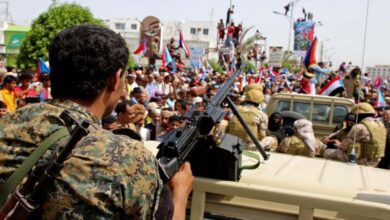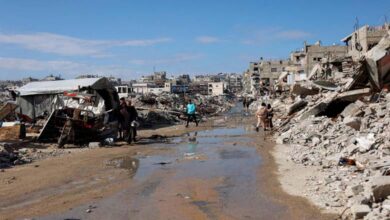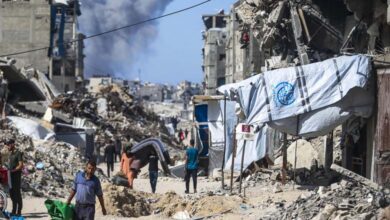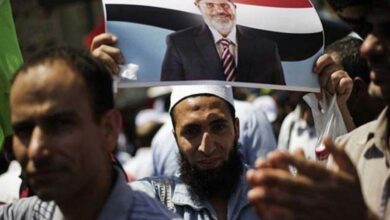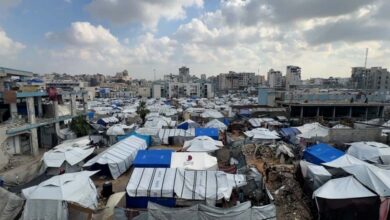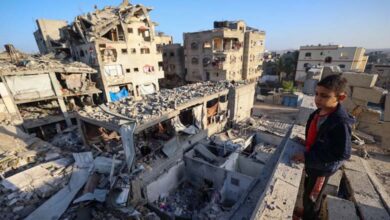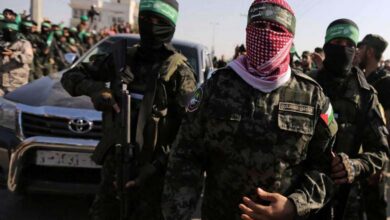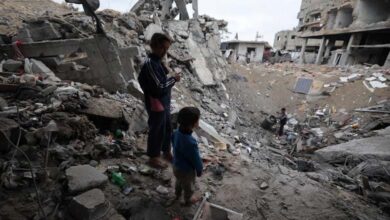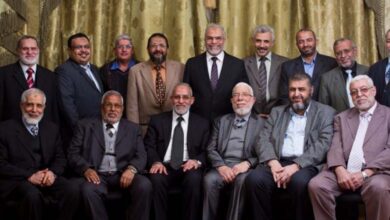Iran plays the role coordination game between Hamas, Hezbollah, and Islamic Jihad
Iranian Foreign Minister meets Hezbollah Secretary-General and leaders from Hamas and Islamic Jihad in Beirut before heading to Doha
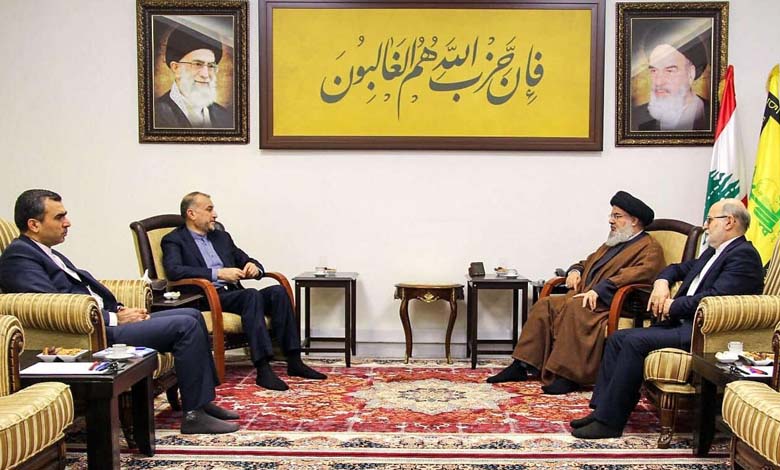
Iranian Foreign Minister Hossein Amir Abdollahian met Hezbollah Secretary-General Hassan Nasrallah in Beirut, as announced by the party on Thursday, in his second visit since the outbreak of the war between Hamas and Israel in the besieged Gaza Strip.
The meeting comes after a similar meeting between Nasrallah and a delegation from Hamas, including the deputy head of the movement in the Gaza Strip, Khalil al-Hayya, and the leader Oussama Hamdan, who also met with Abdollahian along with the Secretary-General of the Islamic Jihad Movement.
The two meetings indicate coordination between Iran and the wings of the resistance axis, without any party announcing the content of the meetings except for phrases commonly used, such as “discussing developments on the ground.”
Hezbollah stated in a statement that during the meeting, the date of which was not specified, they “reviewed the latest developments in Palestine, Lebanon, and the region, and the existing possibilities regarding the course of events and the efforts made to stop the Israeli aggression on the Gaza Strip.”
Iran, which constitutes the spearhead in the resistance axis, congratulates Hamas for its attack on Israel but distances itself from planning or intervening in the attack in support of the Palestinian Islamic movement.
Nasrallah had previously announced in his first speech about a month after the Israeli aggression on Gaza that there is no Iranian guardianship over the armed Palestinian factions or Hezbollah, stating that the decision of the Operation Sword of Al-Quds is a purely Palestinian decision. He also emphasized that the military decision, whether in Hezbollah or Hamas, remains with the field commanders on the ground.
Iran declared that it has no desire to expand the scope of the war, but it threatened escalation if the aggression continues, while its militias in Iraq moved to launch limited strikes targeting U.S. bases and interests in the region. These attacks did not cause casualties and were not disturbing for the United States, which also responded with strikes that killed five members of one militia.
The Iranian minister headed to Doha after his visit to Beirut, according to the Iranian news agency “IRNA” on Thursday.
During his visit to Beirut, Abdollahian met with Lebanese officials, as well as the Secretary-General of the Islamic Jihad Movement, Ziyad al-Nakhalah, and the Deputy Head of Hamas, Khalil al-Hayya.
The Iranian minister’s visit preceded the announcement of the postponement of the implementation of the temporary truce agreement between Israel and Hamas in the Gaza Strip, which was supposed to include a hostage and prisoner exchange.
The agreement was supposed to come into effect on Thursday at 08:00 GMT, but Israeli and Palestinian officials announced that it would not start until Friday.
During an interview with Al Mayadeen channel on Wednesday, Abdollahian warned of the widening of the war in Gaza in the region if the ceasefire is not continued. He said, “We do not look forward to expanding the war,” adding that “any possibility is likely if the aggression continues.”
In Lebanon, the southern border region witnesses escalating military tensions between Israel and Hezbollah since Hamas launched an unprecedented attack on Israel on October 7. Israel responds with destructive shelling and a ground operation in the besieged Gaza Strip.
Hezbollah carries out daily operations against Israeli military targets near the border, considering it in support of Gaza and “support for its resistance.” Israel responds with shelling of border areas targeting what it describes as movements of Hezbollah fighters and military facilities belonging to it near the border.
On Thursday, Hezbollah announced 11 operations against Israeli sites, including firing 48 Katyusha rockets at a military base near the northern city of Safed. Meanwhile, the Israeli army shelled several towns in southern Lebanon, according to Lebanon’s official National News Agency.
The escalation resulted in the killing of 108 people, mostly fighters in the ranks of Hezbollah, and at least 14 civilians, including three journalists. Israeli authorities reported the deaths of nine people, including three civilians.


